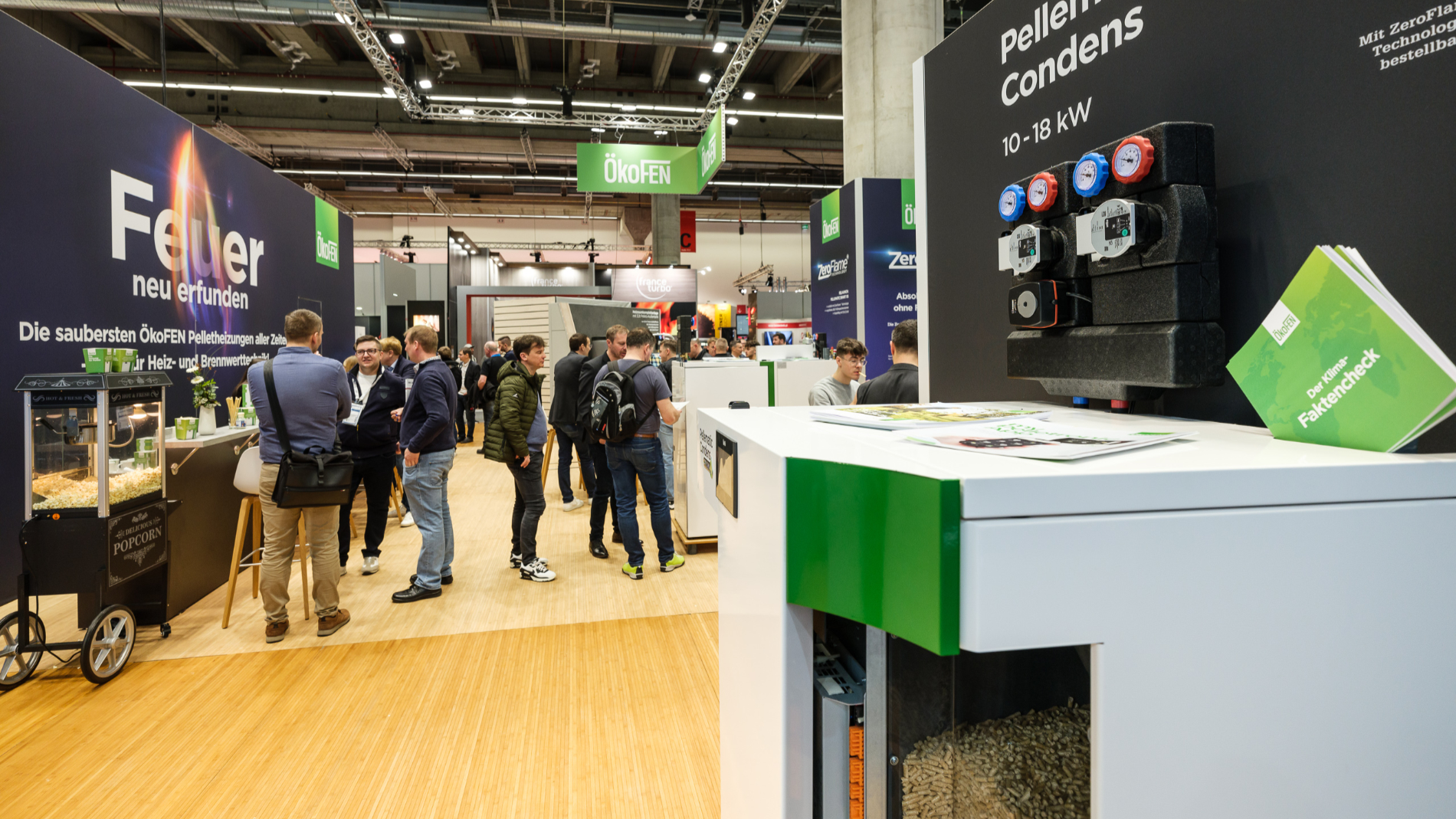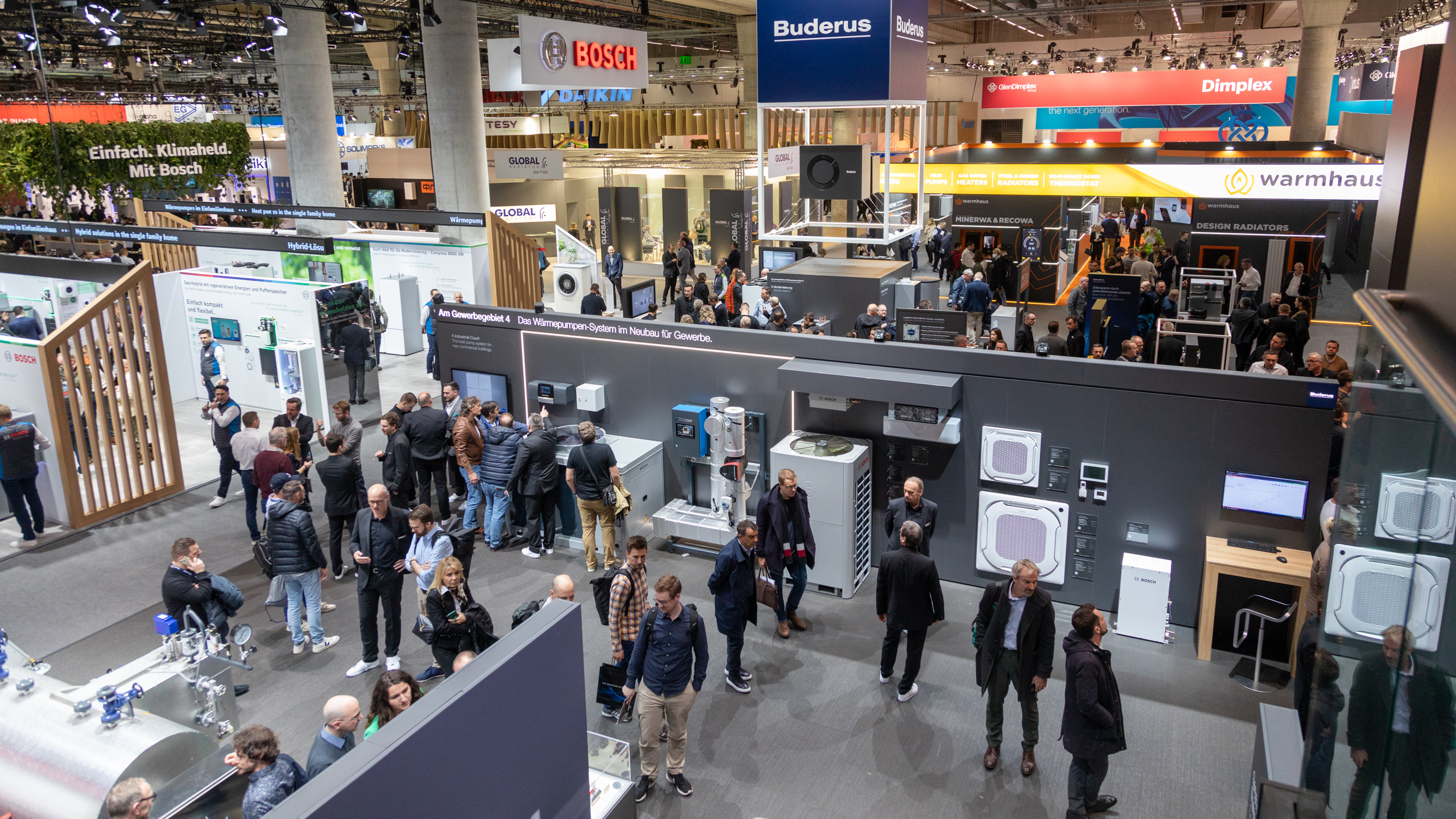Heating with renewable fuels

Biomass is defined as organic, renewable material used for energy and heat generation, e.g., wood, pellets, wood chips and biological waste. In addition to single-room fireplaces, the most common biomass heating systems include pellet heating systems, wood chip heating systems and combi boilers.
Heating with organic fuels offers numerous advantages in terms of sustainability:
- When biomass is burned, it releases only the CO2 that was previously absorbed by the growing plants, thus ensuring an almost closed carbon cycle.
- As a renewable, local resource, biomass helps to reduce dependency on fossil fuels and external energy networks.
- The production of biomass from wood residues or agricultural waste contributes to resource efficiency and waste reduction as part of the circular economy.
- From pellet heating systems to log burners and stoves to duel-fuel boilers: the wide range of biomass heating systems means there are numerous potential applications for residential and industrial properties.
Pellet heating: flexible heat generation
Boasting an energy efficiency of up to 90 percent, modern pellet heating systems generate heat in a resource-friendly manner – primarily from wood waste. Innovative condensing technology further increases the efficiency of heat generation using wood pellets, while high-performance filter systems minimise particulate emissions.
The automated operation of pellet heating systems not only increases user comfort but also ensures even and efficient combustion. Thanks to their high energy density, wood pellets require very little storage space, for example, they can be kept where the tank of an oil heating system used to be. The scalability of pellet heating systems – from compact single-room stoves to large wood-fired boilers – offers a high degree of flexibility when it comes to their installation in different types of buildings.
For added sustainability, pellet heating systems can also be combined with other renewable heating systems, such as heat pumps, to create an efficient hybrid solution.
Wood heating: sustainable single-room fireplaces
Single-room heating appliances such as wood burners and chimney stoves have developed into highly efficient biomass heating systems with efficiency levels of up to 85 percent. Innovative models with integrated heat accumulators maximise energy efficiency. Thanks to advanced combustion processes and improved air flow, emissions have been significantly reduced.
The flexibility of wood-burners and chimney stoves permits a demand-based heat supply, which is ideal for the spring and autumn seasons or to supplement existing heating systems.
Woodchip stoves: Inexpensive heating systems
Woodchips are converted into thermal energy in woodchip boilers with an efficiency rate of up to 90 percent. As a cost-effective fuel, woodchips help to reduce heating costs. Additionally, utilising wood waste from local forests or the wood-processing industry reduces transport distances, thus cutting CO2 emissions.
Woodchip heating systems are suitable for both larger individual properties and local heating networks. Modern systems have automated feed and cleaning systems that ensure convenient and low-maintenance operation. Innovative condensing technology and efficient filter systems maximise energy yield while minimising particulate emissions.
Dual-fuel boilers: the advantages of biomass heating systems combined
Dual-fuel boilers combine the advantages of firewood and pellet heating systems. With efficiencies of up to 93 percent, dual-fuel boilers are among the most efficient biomass heating systems currently available. Their advanced combustion technology with automated regulation ensures the best possible energy yield regardless of the fuel used. Innovative filter systems for particulate reduction ensure good air quality.
Dual-fuel boilers represent a new level of flexibility and heating security: depending on price and availability, homeowners and facility operators can switch between firewood, wood pellets and, in some cases, even woodchips. This saves money on sustainable heating and makes users independent of bottlenecks on the supply side. Hybrid systems, i.e., combinations of heat pumps and biomass heating, are the perfect solution for those wanting to use more than one source of energy. Thanks to intelligent control systems, hybrid systems always use the most economical source of energy available.
The scalability of dual-fuel biomass boilers means they are suitable for a wide range of applications, from single-family homes to larger building complexes and municipal facilities. They can also be combined with solar thermal systems or heat pumps, to create hybrid heating systems.
At ISH 2025, visitors can discover the full range, efficiency and versatility of modern biomass heating systems and learn about the innovations and improvements that make these technologies important pillars of the heating transition.
